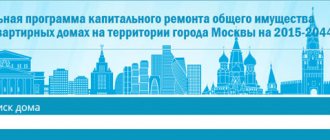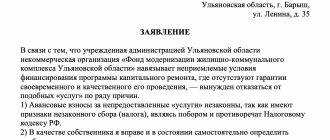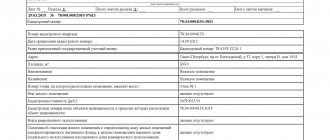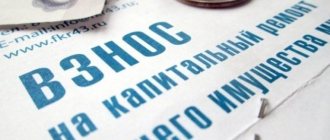Blog
Photo source: https://www.pexels.com/
The goal of every commercial organization is to make a stable profit. That is why effective management of the housing stock is the most important task for a management company. Since a good half of the housing stock in the Russian Federation is not in the best condition, and before major repairs under the regional program, houses may fall apart, many management organizations (HOA) take the initiative into their own hands and vote for a special account. But, as practice shows, transferring money to a special account, the owner of which has been chosen by a management organization (HOA), is half the battle. The important thing is to keep them.
According to clause 1.1, part 2, article 44 of the Housing Code of the Russian Federation, the competence of the general meeting of owners of apartment buildings includes making decisions on choosing a method for forming a capital repair fund, choosing a person authorized to open a special account in a Russian credit organization, and performing transactions with funds located on a special account.
In accordance with Part 2 of Article 189 of the Housing Code of the Russian Federation, the owners of premises in an apartment building at any time have the right to decide to carry out major repairs of common property in an apartment building at the proposal of the person managing the apartment building or providing services and (or) performing work on maintenance and repair of common property in an apartment building, a regional operator or on one’s own initiative.
Even at the stage of holding a general meeting to open a special account, management organizations, as a rule, preliminarily agree with the owners to carry out major repairs as the required amount is accumulated in the special account.
At the same time, quite often, payment discipline for making payments for major repairs is not properly monitored. As a result, a significant debt is formed, major repairs of the apartment building are postponed for an indefinite period, and the funds received in the special account can be returned back to the regional operator.
As stated in Part 3 of Article 172 of the Housing Code of the Russian Federation, the owner of a special account is obliged to submit to the state housing supervision authority
in the manner and within the time limits established by the law of the subject of the Russian Federation,
information on the amount of funds accrued as contributions for capital repairs, information on the amount of funds received as contributions for capital repairs, information on the amount of funds spent on capital repairs
from a special account , information on the amount
of the balance in the special account
, information on the conclusion of a loan agreement and (or) a credit agreement for major repairs, with certified copies of such agreements attached.
If a debt is identified, the State Property Housing Authority sends the owner of the special account a notice of its repayment within five months. If the debt is not repaid within the specified period, the local government body makes a decision on the formation of a capital repair fund in the account of the regional operator and sends such a decision to the owner of the special account.
It was because of the resulting debt that the HOA from Novosibirsk lost funds for major repairs and was unable to defend them in the Supreme Court.
As follows from the case materials,
the HOA was the owner of the special account.
During the inspection,
the housing inspectorate identified arrears in payment of contributions in the amount of 61,119 rubles 86 kopecks, and sent a notice of its repayment within a period of no more than five months.
After the expiration of the specified period, the inspection official drew up an act of examining documents for debt repayment, which indicated that, according to the statement of the credit institution provided by the HOA,
the amount of actual contributions received from the owners of the premises amounted to 9,339 rubles 27 kopecks
.
In order to make a decision on the formation of a capital repair fund on the account of the regional operator, the inspectorate sent a letter to the mayor's office with information that the amount of actual receipts of contributions from premises owners for the major repairs of apartment buildings was less than 50 percent of the amount of bills submitted for payment to the premises owners. The mayor's office adopted resolutions to amend Resolution No. 7109, by which MKD is included in the List of apartment buildings that form the capital repair fund on the account of the regional operator.
Having disagreed with the resolutions of the mayor's office regarding the inclusion of apartment buildings in the List, the HOA appealed to the arbitration court . As the Supreme Court of the Russian Federation indicated in its ruling dated May 30, 2018. No. 304-KG18-6182 in case No. A45-2581/2017,
the courts proceeded from the fact that
the debt
in the amount specified in the notice
was not repaid within the established five-month period by the owners of the premises in the apartment building, the formation of the capital repair fund in the apartment building was carried out by the partnership in an improper manner, including funds in the amount received from the owners of the premises on the special account was not deposited, but went to the HOA cash desk and was spent without using a special account.
The courts came to the conclusion that the inspection had a legal basis for notifying the local government body (mayor's office) about the failure to repay the debt for capital repairs by the owners of apartment buildings in order for the local government body to make a decision on the formation of a capital repair fund on the account of the regional operator.
The partnership’s reference to confirm the expenditure of funds from the capital repair fund on the contract dated 08/07/2015 No. 04-2015 was not reasonably taken into account by the courts, since the case materials do not contain evidence that the work performed was paid for (transferred) to the contractor from the funds of the fund major repairs.
Another reason for the return of funds to the regional operator is untimely completion of major repairs.
The regional program for capital repairs of common property in apartment buildings determines the deadlines for the owners of premises in such buildings and (or) the regional operator to carry out capital repairs of apartment buildings (Part 1 of Article 168 of the Housing Code of the Russian Federation).
It must be taken into account that, according to Part 7 of Article 189 of the Housing Code of the Russian Federation, if major repairs of common property in an apartment building, the owners of premises in which create a capital repair fund in a special account, are not carried out within the time period stipulated by the regional capital repair program,
and at the same time, in accordance with the procedure for establishing the need for major repairs of common property
in
an apartment building, the provision of any type of service and (or) performance of any type of work provided for for this apartment building by the regional capital repair program is required, the local government body within one month from the date of receipt of the relevant notification, makes a decision on the formation of a capital repair fund in the account of the regional operator and sends such a decision to the owner of the special account.
The owner of a special account is obliged to transfer the funds in the special account to the account of the regional operator within one month from the date of receipt of such a decision from the local government.
Based on the foregoing, we can conclude that when forming a capital repair fund on a special account, repairs in the apartment building must be carried out no later than the deadlines specified in the regional program, and the amount of actual receipts of contributions for capital repairs must be more than fifty percent of the amount of assessed contributions.
creates websites for management companies and homeowners associations. The resources meet all legal requirements. More detailed information about the service here
.
You can discuss the article and ask questions on our forum or use the form below.
Is it necessary?
A special account is a bank account on which the security of an application for participation in procurements carried out for small and medium-sized businesses under 223-FZ, as well as 44-FZ is blocked - mainly for purchases worth more than 1 million rubles. Why mostly? Because the procurement legislation provides for the possibility for the customer to establish application security for purchases with a starting price and less than 1 million rubles. However, in practice, such cases are rare, and, in general, there is no security for applications for purchases worth less than 1 million rubles.
In addition, the security for an application for participation in a procurement under 44-FZ can be provided not only in the form of money that is blocked in a special account, but also in the form of a bank guarantee.
Therefore, if, for example, you decide to take part in a small purchase one-time or are ready to open a BG, you don’t have to open a special account.
By the way, in the Tender Plan you can find purchases for which application security is not required, simply by setting the value 0 in the corresponding column of the search form.
Opening date and service features
The deadline for opening a special account, subject to the provision of a complete package of documents, is 1 business day from the date of receipt of the application by the bank.
The bank's obligation to charge interest on the balance in a special account is legally established; however, the legislator did not indicate the amount of interest, so it differs greatly from bank to bank. For example, at Sberbank it is 0.01%, and at Tochka Bank it is from 0.5 to 4.5% on the minimum balance.
Opening and maintaining a special account is free, however, the law does not prohibit banks from charging a commission for transactions carried out on a special account . For example, Sberbank charges 50 rubles for each blocking.
During the period when funds are blocked by the operator of the electronic platform to secure an application for participation in the procurement, the participant does not have the right to dispose of these funds. In addition, regulatory authorities, for example, the Federal Tax Service, do not have the right to foreclose on such funds.
Opening a special account
You will need:
1. Find out whether the bank servicing the company’s main current account is included in the list of banks in which, in accordance with Government Order No. 1451-R dated July 13, 2018, participants can open special accounts. The full list of banks can be found on the official website of the EIS, but we will highlight the most popular:
- Sberbank of Russia;
- Alfa Bank;
- VTB;
- Otkritie Financial Corporation (this also includes Tochka Bank, popular among entrepreneurs);
- Tinkoff;
- Raiffeisenbank;
- Rosselkhozbank;
- Gazprombank;
- Sovcombank;
- Home Credit and Finance Bank;
- Rosbank.
It is convenient when the special account and the main settlement account are located in the same bank, especially if the number and amount of contributions are large. In this case, the period for transferring funds between accounts is minimal, in contrast to interbank transfers. But you can choose another bank to open a special account.
2. Make sure that using a special account will not cause problems:
- take into account the time of bank settlement operations;
- deadline for crediting funds to the account;
- possibility of emergency replenishment;
- the presence of commissions for transactions carried out on the account and their size;
- features of working with the account (for example, access through online banking).
3. And finally, the last step is to submit an application to open a special account directly to the bank. In some, you can do this remotely, without visiting the office.
A possible question from bank employees when opening a special account is for what purpose it is needed. Usually it is enough to explain for what type of trading it will be used - to work within the framework of 44-FZ or 223-FZ.
It doesn’t matter what kind of procurement you take part in - Tenderplan will include both government tenders and commercial tenders. Convenient search, mailing setup, analytics and procurement management in one service
Search tenders for free 14 days
What can you read if you want details?
- Article 44 of the Federal Law No. 44-FZ - it contains information on securing applications for participation in procurement procedures;
- RF PP No. 564 dated May 10, 2021 - on the procedure for writing off fees for participation in procurement by operators of electronic platforms;
- RF PP No. 626 dated May 30, 2021 - contains requirements for a special account agreement and the terms of interaction between banks and electronic platforms;
- Letter of the Ministry of Finance No. 24-06-08/79659 dated November 6, 2021 - in it the department answers frequently asked questions regarding working with special accounts;
- Government Order No. 1451-R dated July 13, 2018 - contains a list of banks that can open special accounts.
What happens to the money in the special account?
They are blocked by the operator of the electronic platform. The amount to be blocked is equal to the amount of security for the application for participation in the procurement, indicated in the notice of procurement, and for most procurement procedures ranges from 0.5 to 5% of the initial maximum contract price.
This blocking occurs automatically within two hours from the end of submitting applications for participation in the procurement procedure.
In other words, you submitted the application, made sure that the required amount is in the special account, and then everything happens without your participation.
After blocking funds, the operator of the electronic platform sends a corresponding notification to the participant. The wording in this notification can be different, and sometimes even a little scary, for example: “Funds in account 407028...in the amount of XXX...are blocked.” It looks like not very pleasant notices from the tax office. However, in reality this is a positive notification confirming the successful blocking of funds in a special account.
Unblocking of funds is also carried out by the operator of the electronic platform within 1 business day after the occurrence of one of the following events:
- the participant has withdrawn the application;
- the customer canceled the procurement procedure;
- the participant’s application was not allowed to participate based on the results of its consideration by the customer;
- the participant did not take part in the electronic auction;
- the participant did not win the procurement, but his application was recognized as appropriate based on the results of consideration of applications by the customer;
- conclusion of a contract - for the participant recognized as the winner.
In addition, a fee is debited from a special account, which is charged to the participant in the event of winning the procurement procedure. Let us recall that the amount of such a fee is 1% of the initial maximum contract price, but not more than 5,000 rubles for regular purchases, and not more than 2,000 rubles for procedures in which only small and medium-sized businesses can participate. Most sites also add VAT to this amount.
Important
You can view the status of a special account only in the Internet bank; the functionality of electronic platforms does not provide the ability to display the balance on their personal accounts. Therefore, be careful and periodically check the status of your account, because if at the right time there is no money in the special account, you will not be able to participate in the procurement procedure - the application will be rejected by the electronic signature operator .
There may be several special accounts, you can open them, and at the time of submitting an application, simply select the one you need in a special column.
Some banks charge a fee for inactivity on the account, if such a condition was specified in the agreement. Therefore, if you plan to use a special account not often, we recommend that you check before opening an account whether such a condition is in your agreement. And, if there is one, the period during which the absence of transactions on the account will allow the bank to recognize it as inactive, the amount of the commission and the conditions for activation.








